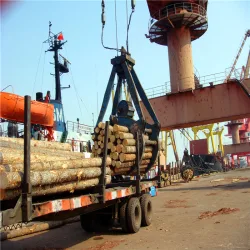Here are some key aspects of the role of port agents
2023-12-28
Port agents, also known as shipping agents or maritime agents, play a crucial role in the logistics and operations of ships and vessels when they arrive at a port. Their responsibilities are diverse and cover a range of tasks to ensure the smooth entry, stay, and departure of ships. Here are some key aspects of the role of port agents:
1. Coordination and Communication:
- Port agents act as intermediaries between shipowners, charterers, and local authorities. They facilitate communication and coordination among various parties involved in port operations.
2. Logistics and Services:
- Port agents assist with arranging and coordinating various services, including pilotage, tugboat assistance, berthing, and unberthing. They ensure that the necessary services are available and properly scheduled.
3. Customs and Immigration:
- Port agents help facilitate customs and immigration processes for the crew and the vessel. They may assist in completing necessary paperwork and ensuring compliance with local regulations.
4. Documentation:
- Port agents are responsible for handling and processing various documents related to the arrival, stay, and departure of a vessel. This may include customs declarations, crew lists, cargo manifests, and other paperwork required by port authorities.
5. Crew Welfare:
- Port agents may assist with crew welfare, including arranging medical assistance, shore leave, accommodation, and transportation for crew members during their stay in port.
6. Supplies and Provisioning:
- Port agents can help coordinate the supply of fuel, water, provisions, and other necessities for the vessel. They may also handle arrangements for waste disposal.
7. Cargo Operations:
- For vessels involved in cargo operations, port agents assist in coordinating the loading and unloading of cargo. They work closely with stevedores, terminal operators, and other relevant parties.
8. Safety and Compliance:
- Port agents ensure that vessels comply with safety regulations and environmental standards. They may liaise with local authorities to address any safety or environmental concerns.
9. Emergency Response:
- In the event of emergencies or unforeseen circumstances, port agents play a crucial role in coordinating responses, including assistance with salvage operations, pollution control, and incident reporting.
10. Financial Transactions:
- Port agents may handle financial transactions on behalf of shipowners or charterers. This includes settling port dues, pilotage fees, and other charges incurred during the vessel's stay in port.
11. Information Provision:
- Port agents keep shipowners and charterers informed about port conditions, regulations, and any changes that may affect the vessel's operations.
Port agents serve as the local representatives of shipowners and operators, providing essential support to ensure efficient port operations. Their expertise in local regulations, procedures, and contacts helps expedite processes and contributes to the overall efficiency of maritime logistics.



